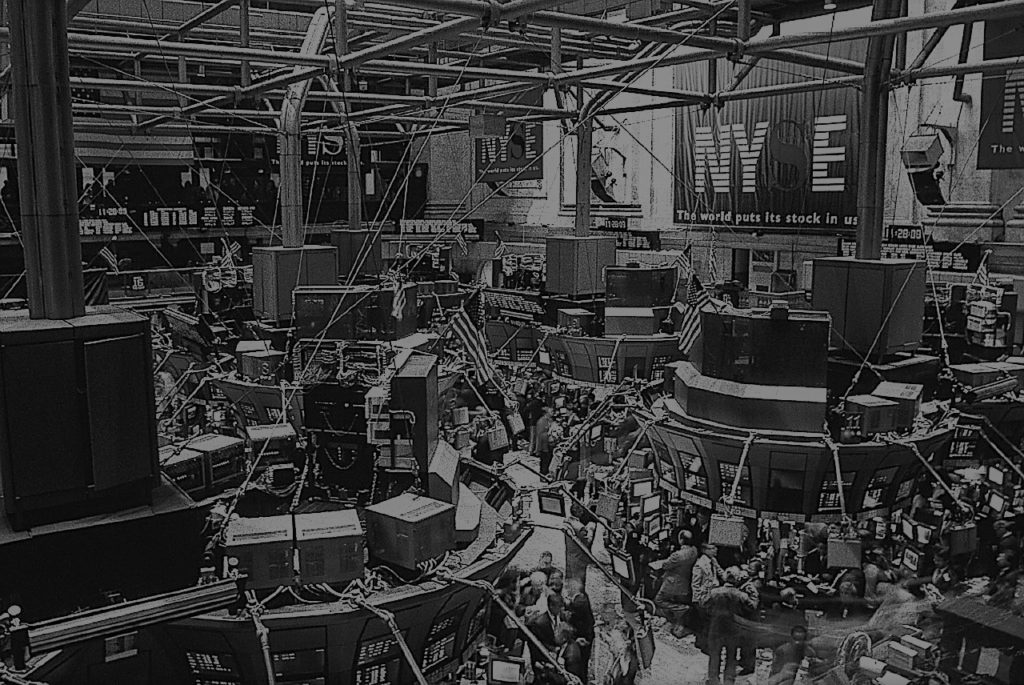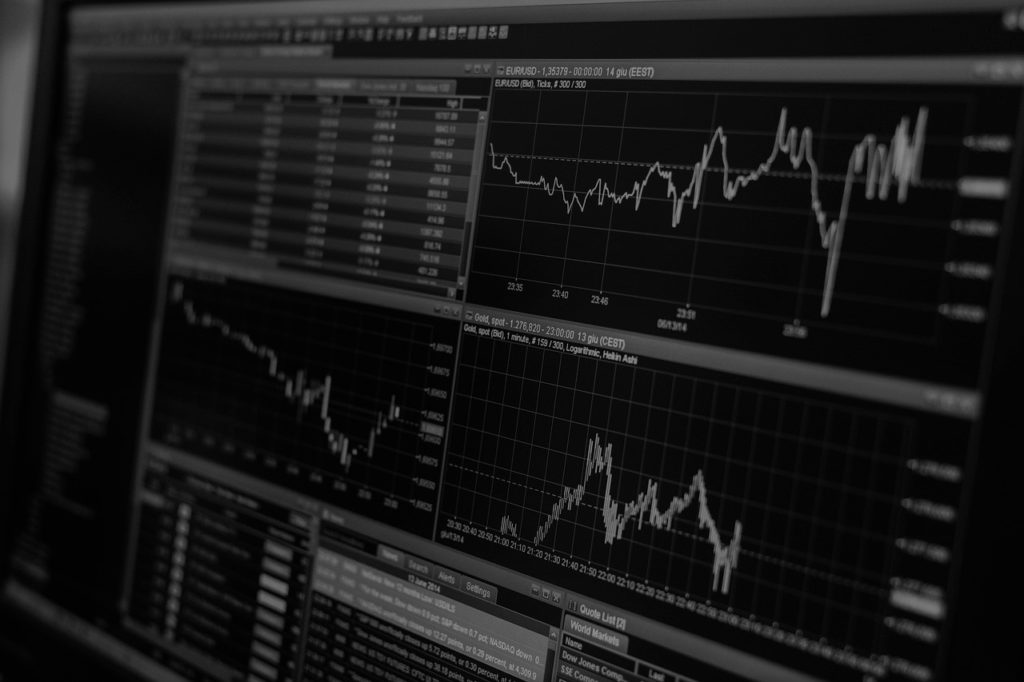Best Forex Broker – A Forex Brokers Comparison
Top Forex Brokers Compared
A reliable and trustworthy forex broker is one of the most important things when it comes to forex trading. We will help you to pick the right fx brokers and also answer the most asked questions.
| Broker | Min. Spread | Regulation | Min. Deposit | Max. Lev. | Rating |
|---|---|---|---|---|---|
| eToro | 3.0 pips | CySEC, FCA, ASIC | $200 | 500:1 | |
| FXTM | 0.0 pips | CySEC, FCA, FSC | $10 | 30:1 | |
| XM | 0.0 pips | CySEC, IFSC | $5 | 888:1 | |
| AvaTrade | 0.6 pips | ASIC, CBOI, FSA, FSCA, BVI | $100 | 400:1 | |
| RoboForex | 0.0 pips | IFSC | $10 | 2000:1 |
What is a forex broker?
![]()

A forex broker is an entity or company that intermediates a forex trader’s access to the largest financial market in the world: the foreign exchange market. Foreign exchange deals with trading currencies and these currencies are grouped in currency pairs.
Because these currency pairs are volatile, traders can speculate on the future direction. A broker’s incomes come from commissions and spreads and the interest of any broker is to have active traders, as commissions are being gained on each and every trade, no matter if the trade is a winning or a losing one.
What is a regulated broker?
![]() Forex trading is an extremely competitive industry and as such many traders are attracted to it and many brokers as well. The whole industry is regulated in different jurisdictions and by different regulators and this means such a broker needs to obey some rules or a specific conduit of doing business.
Forex trading is an extremely competitive industry and as such many traders are attracted to it and many brokers as well. The whole industry is regulated in different jurisdictions and by different regulators and this means such a broker needs to obey some rules or a specific conduit of doing business.
Issues like funds safety, privacy, etc., are very important to any trader and if the broker is regulated such things are a norm. Without regulation, a broker is simply not worth trading with as it is too risky to trade with it. The forex broker should be a trader’s partner as it is in both parties interest trading is profitable. If the trader makes a profit, will trade more and hence the broker will earn even more from commissions.
In the eventuality that something is happening with the broker, like going bankrupt or having some other financial difficulties, the regulatory body steps in and customers are reinsured that their funds are not affected as regulation comes most of the time with funds being segregated at another entity (a custodial bank). All in all, look to trade with a regulated broker in order to avoid unpleasant surprises.
What makes a good forex broker?
![]()
 There are many things to look for when searching for a forex broker and due to the fact that this industry is really competitive, small details matter the most. Some forex brokers even offer free forex trading signals. There are also a lot of scam brokers out there, beware!
There are many things to look for when searching for a forex broker and due to the fact that this industry is really competitive, small details matter the most. Some forex brokers even offer free forex trading signals. There are also a lot of scam brokers out there, beware!
If you will pick one of the brokers from our comparison you will be safe, we only list trustworthy companies with one or multiple regulations in different countries. If you are not sure which broker will fit you best, then try a demo account. These are available for almost any forex broker on the market. Before you compare the brokers in the chart it is recommended to take a look at the following hints.
Here are some important things you should consider:
Regulation
- This is a must, a good forex broker must be regulated. No ifs and buts here.
- Moving on, the trading platform plays an important role. Most of the brokers are offering the Metatrader, the most popular trading platform as traders are used to it and there are no surprises. However, there are brokers that developed their own platforms and trading there is a bit difficult until the trader gets used to it.
- This doesn’t mean that the broker is a bad one, only that the trading process is a bit more difficult at the beginning and this makes a trader avoid opening a trading account with such a broker.
Execution
- This is key when trading financial market.
- A good forex broker is offering either ECN (Electronic Communication Network) or STP (Straight Through Protocol) technologies and basically this means the currency pairs are being quoted with five digits. It is being said that a broker is offering a five digits trading account.
- Either ECN or STP is an insurance from the broker that a trade will be executed at market if there is a market! Sometimes the forex market is moving so fast and quotes are changing so rapidly that a trade is executed with a so-called slippage.
- The more these slippages are missing, the better the execution is, hence the better the broker is perceived to be.
Low Spreads
- The spread is the difference between the bid and the ask price and the lower the spreads the better the broker will be from a trader’s point of view.
- Spreads vary based on a variety of factors, such as the access to the liquidity pool the broker has or how the forex broker wants to position itself.
- For example, one forex broker may advertise itself as having little or no commission, but in reality, that difference is compensated by having bigger spreads than the average brokers.
Funds segregation
- One of the most things when it comes to trading in general and trading forex markets, in particular, represents funds safety.
- Segregation is a must and it means the forex broker cannot touch the money deposited with it as they are in the custody of another bank.
Why forex brokers have promotions?
![]() The brokerage business runs also during periods of time when traders are not that active, like Christmas period, summer holidays, etc. These periods of time are characterized by small ranges, big consolidation periods, and traders do not open that many positions as normal.
The brokerage business runs also during periods of time when traders are not that active, like Christmas period, summer holidays, etc. These periods of time are characterized by small ranges, big consolidation periods, and traders do not open that many positions as normal.
To avoid a significant drop in incomes, brokers give promotions or bonuses that can take the form of a welcome bonus (a sum that will be deposited to the trader’s account as a proportion of the amount funded and that can be cleared upon a specific volume has been traded) or in the form of other rewards the broker offers. But don`t trust bonus offers from shady brokers, they sound to good to be true most of the time!
Is a broker bad if I receive a margin call?
![]()

This has nothing to do with the brokerage business. The margin call is not happening because of the broker, but because the trader opened too many positions that went against the desired direction and there is no sufficient market in the trading account anymore.
In fact, receiving a margin call from the broker is the best thing a trader can hope when the market is moving against the open positions as there is still time to either close the positions and release the margin or to deposit new funds and therefore having a new margin for trading. Hopefully you are aware of this issue now and can react accordingly.
Can I withdraw my money anytime?
![]() Yes, with one condition only: the funds must not be blocked in a margin to support other positions or the remaining funds are enough to cover for the open positions. There are different conditions depending on the broker when one wants to withdraw money.
Yes, with one condition only: the funds must not be blocked in a margin to support other positions or the remaining funds are enough to cover for the open positions. There are different conditions depending on the broker when one wants to withdraw money.
For example, for safety reasons, some brokers require funds to be withdrawn from the same source like the one used for funding the account, and only the amount that exceeds the initial deposit can be redirected to a different destination. This is happening in order to prevent money laundry and other illegal online activities.
Are all forex brokers the same?
![]() No. Depending on the region, forex brokers have to respect different rules and regulation. The biggest discrepancy is seen in the United States of America where forex brokers do not allow traders to hedge a position and the closing of a position must be made under the FIFO (First In First Out) rule. Hedging means a trader can open the same trade in different directions and this is not allowable under the US regulation as it is considered to be too risky.
No. Depending on the region, forex brokers have to respect different rules and regulation. The biggest discrepancy is seen in the United States of America where forex brokers do not allow traders to hedge a position and the closing of a position must be made under the FIFO (First In First Out) rule. Hedging means a trader can open the same trade in different directions and this is not allowable under the US regulation as it is considered to be too risky.
It is allowed in the rest of the world, though. FIFO refers to the order of the trades in a trading account, and the closing of open trades can be made only by respecting the opening date. In other words, if a trader wants to close a profitable trade but still has one older trade that is in a loss, he/she cannot close the profitable one before closing the losing one in the first place.
What makes a good customer service?
![]()
 Communication and easy to get in touch and solve problems. This is what matters the most. If you have good forex trading strategies but the customer support of your broker sucks, you are not going to be a successful trader.
Communication and easy to get in touch and solve problems. This is what matters the most. If you have good forex trading strategies but the customer support of your broker sucks, you are not going to be a successful trader.
It is always easier to be able to discuss with the broker on a live chat then through email as things get resolved quickly this way. A phone call always helps as well, but lately it is being proved that online live chat works better. A good customer service is one that has no unanswered questions and there’re no secrets between the broker and its client. Before you open an account you can test the customer service yourself, if you are happy with the service it is a reason more to pick that broker.
How can a broker cheat you?
![]() First of all, a broker that tries to cheat its clients it is actually stealing its own hat. In the end, the brokerage industry strives when a broker has more active traders and is able to retain its clients before gaining some new ones.
First of all, a broker that tries to cheat its clients it is actually stealing its own hat. In the end, the brokerage industry strives when a broker has more active traders and is able to retain its clients before gaining some new ones.
Retaining clients is more difficult as no one stays with a broker that doesn’t offer fair trading conditions. Increasing spreads during volatile events is usually something that irritates traders as brokers are doing that in order to trigger stops in a trading account.
It is one way to increase the commissioning activity but one thing should be clear from the start: no serious broker, committed to its clients on a long term basis is doing that anymore. It was the case with market makers and other entities, but a true ECN or STP broker, regulated and with segregated account is having difficulties doing that.
Is a broker obligated to fill an order?
![]() Yes. According to the terms and conditions agreed when opening an account, a broker has the obligation to fill an order when there is a market for it. What happens when there’s no market? This is a difficult question to happen as if we look at what happen after the SNB (Swiss National Bank) dropped the peg on the EURCHF pair, for a few minutes there was virtually no floor under the CHF pair, so was no market.
Yes. According to the terms and conditions agreed when opening an account, a broker has the obligation to fill an order when there is a market for it. What happens when there’s no market? This is a difficult question to happen as if we look at what happen after the SNB (Swiss National Bank) dropped the peg on the EURCHF pair, for a few minutes there was virtually no floor under the CHF pair, so was no market.
In this case, no stop loss in the world would help a trader as the broker will fill the order when there’s a market. In some CHF pairs, the market appeared thousands of pips away and that is a loss that is attributed to the forex trader and not to the broker.
What forex brokers to avoid?
![]()
 Any forex broker that is offering a four digit account is to be avoided. Four digit accounts are not fit for today’s forex market anymore as they do not guarantee execution and traders will be requoted when they want to enter a position at market.
Any forex broker that is offering a four digit account is to be avoided. Four digit accounts are not fit for today’s forex market anymore as they do not guarantee execution and traders will be requoted when they want to enter a position at market.
This is happening so often that by the time the broker allows the trade, the market moved away from that desired entry level. Such brokers offer bigger spreads as well. If on an ECN or STP broker the typical spread for the EURUSD pair is less than 1 pip and sometimes goes as low as 0.2 pips, on these four digit brokers it can go as low as 1 pip but as high as 2 or even three. Also, spreads on crosses are bigger than the ones on majors.
Are there brokers with no swap payments?
![]() Yes. Brokers active in Arabic countries offer so-called Islamic accounts. Under these accounts, there is no swap ( the difference between the interest rates of the two currencies that form the currency pair), neither positive nor negative. However, there are some brokers that offer so-called swap free accounts but conditions vary from broker to broker. To have access to such accounts means usually bigger funds to be deposited and sometimes trades cannot be kept open for a big period of time. Finding a broker that respects all the conditions listed here for a good broker plus offers a swap free account is all a forex trader can dream on.
Yes. Brokers active in Arabic countries offer so-called Islamic accounts. Under these accounts, there is no swap ( the difference between the interest rates of the two currencies that form the currency pair), neither positive nor negative. However, there are some brokers that offer so-called swap free accounts but conditions vary from broker to broker. To have access to such accounts means usually bigger funds to be deposited and sometimes trades cannot be kept open for a big period of time. Finding a broker that respects all the conditions listed here for a good broker plus offers a swap free account is all a forex trader can dream on.
Can a broker change the leverage and why?
![]() Yes, it can. This is happening when important political or economic events are coming like elections, referendums, etc. Due to the importance of the event and because the market is expected to move aggressively, in order to protect clients, a broker can raise the margin requirements needed to keep positions open. However, this is a two ways street. Keep in mind that a broker is earning the most through commissions and it is in the broker’s interest for positions to be opened and closed all the time, so that the trader is active and new commissions to be realized. Therefore, sometimes these increase in margin requirements are only there to force a trader to close the trades or to reduce the exposure and in doing that new commissions will be paid. But you will probably not find a broker to admit that and the official tape is that this is in the client’s interest as the risk of unexpected moves is too big and needs to be addressed.
Yes, it can. This is happening when important political or economic events are coming like elections, referendums, etc. Due to the importance of the event and because the market is expected to move aggressively, in order to protect clients, a broker can raise the margin requirements needed to keep positions open. However, this is a two ways street. Keep in mind that a broker is earning the most through commissions and it is in the broker’s interest for positions to be opened and closed all the time, so that the trader is active and new commissions to be realized. Therefore, sometimes these increase in margin requirements are only there to force a trader to close the trades or to reduce the exposure and in doing that new commissions will be paid. But you will probably not find a broker to admit that and the official tape is that this is in the client’s interest as the risk of unexpected moves is too big and needs to be addressed.
– References and Further Reading –
[1.] http://ageconsearch.umn.edu/ – The Traditional Brokers: What Are Their Chances In The Forex? Journal of Applied Economics, Vol. VI, No. 2 (Nov 2003), 205-220
[2.] https://web.wpi.edu/ – WORCESTER POLYTECHNIC INSTITUTE, Forex Trading System Development by Michael Poon, Austin Alibozek and Michael Guarino (Jun 1, 2014)
[3.] https://u.osu.edu/ – Introduction to Forex Trading, William Prempeh (2011)
[4.] https://web.wpi.edu/ – Forex Trading System Development by Ziyan Ding, Omar Olortegui (May 30th, 2016)
[5.] https://www.sec.gov/ – Foreign Currency Exchange (Forex) Trading For Individual Investors (July 2011)
[6.] https://www.cftc.gov/ – Foreign Exchange Currency Fraud: CFTC/NASAA Investor Alert
[7.] https://www.forbes.com/ – Forex 101: Evaluating The Pros, Cons And Risks, Ginger Dean (Nov 30, 2017)
[8.] https://www.nytimes.com/ – Finding the Fraud in the HSBC Currency Trading, Case Peter J. Henning (2016)
[9.] https://www.wsj.com/ – Forex Brokers Under Scrutiny After Swiss Move By Juliet Samuel, Tommy Stubbington and Chiara Albanese (Jan. 20, 2015)

